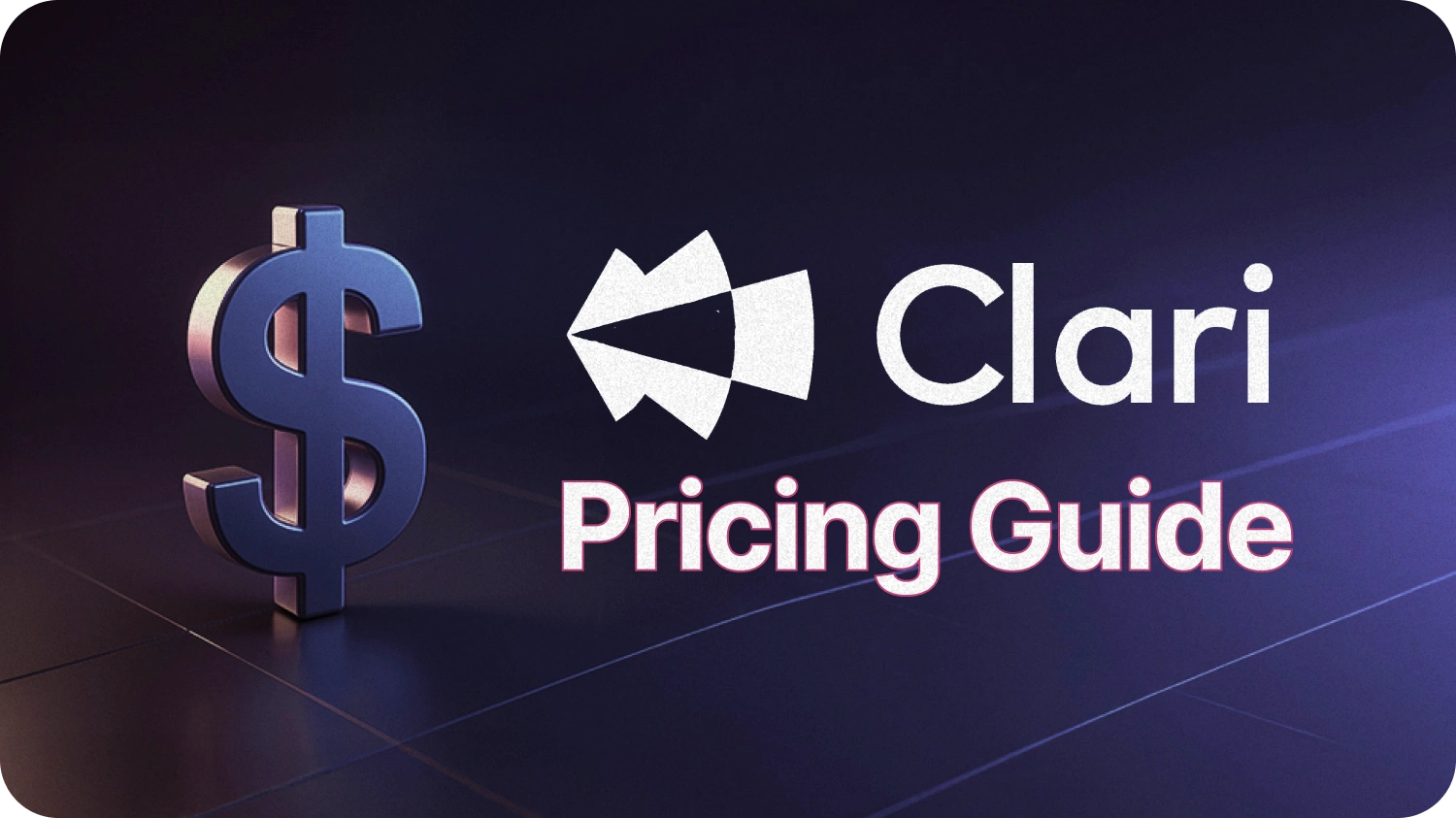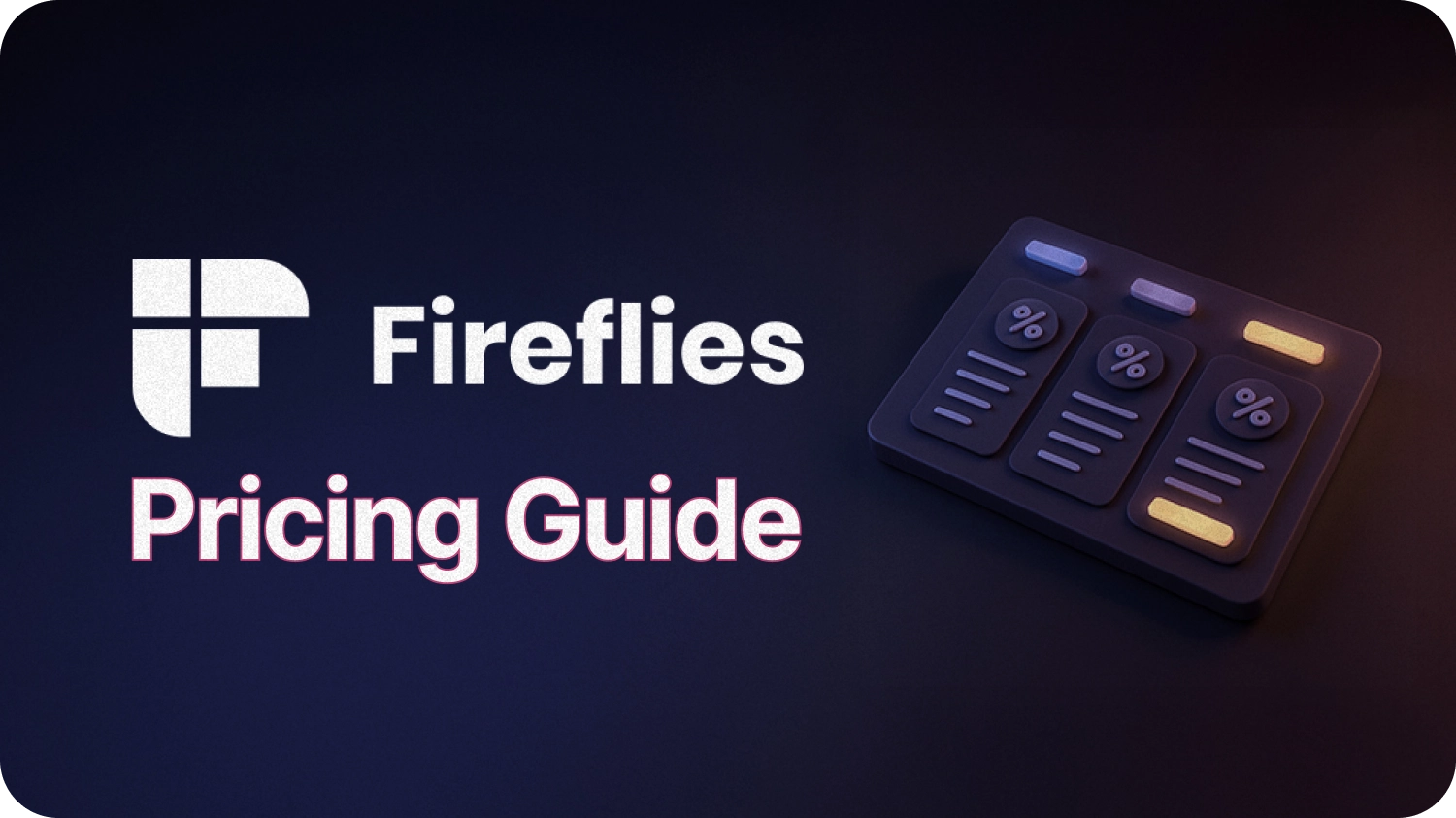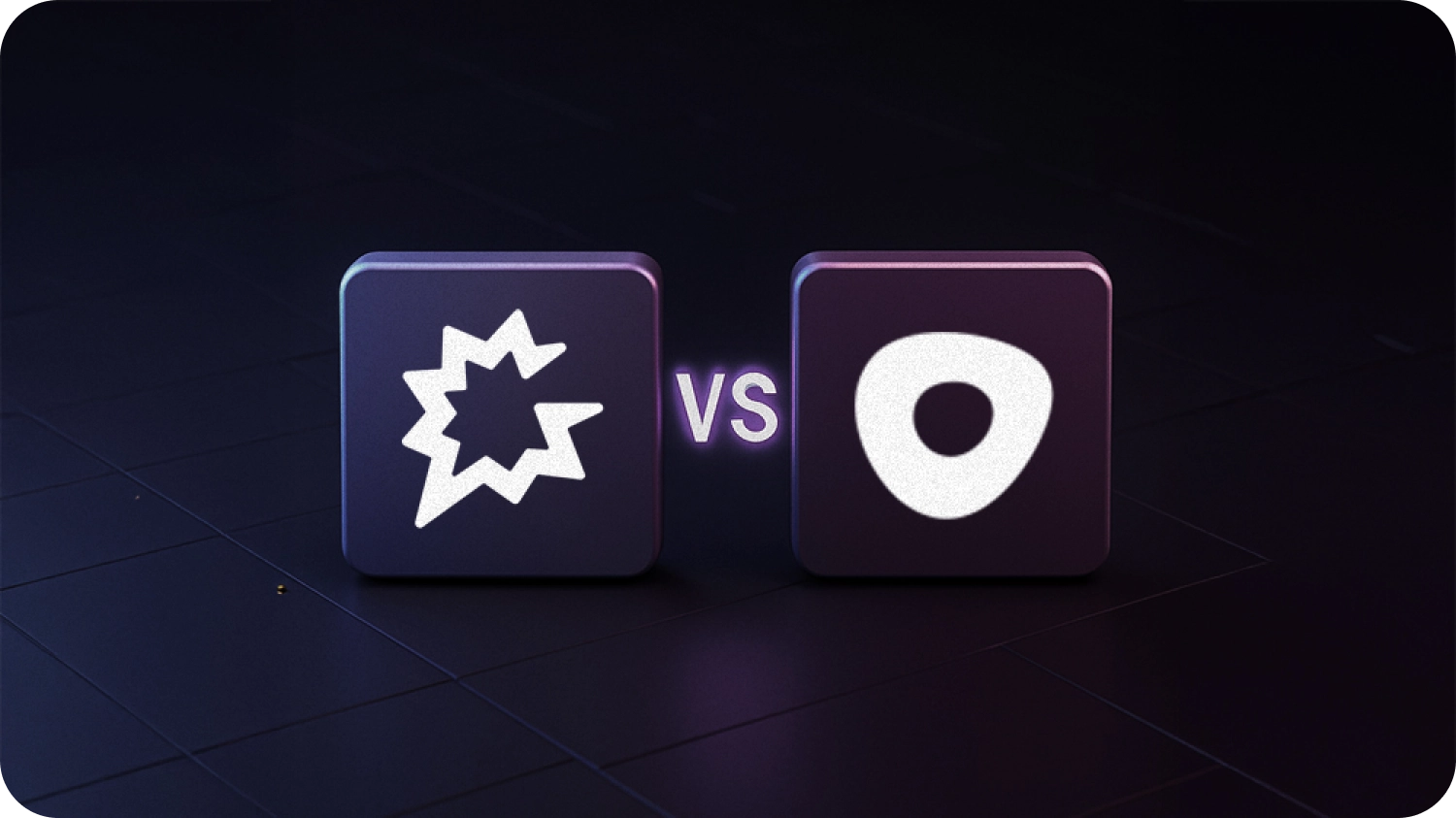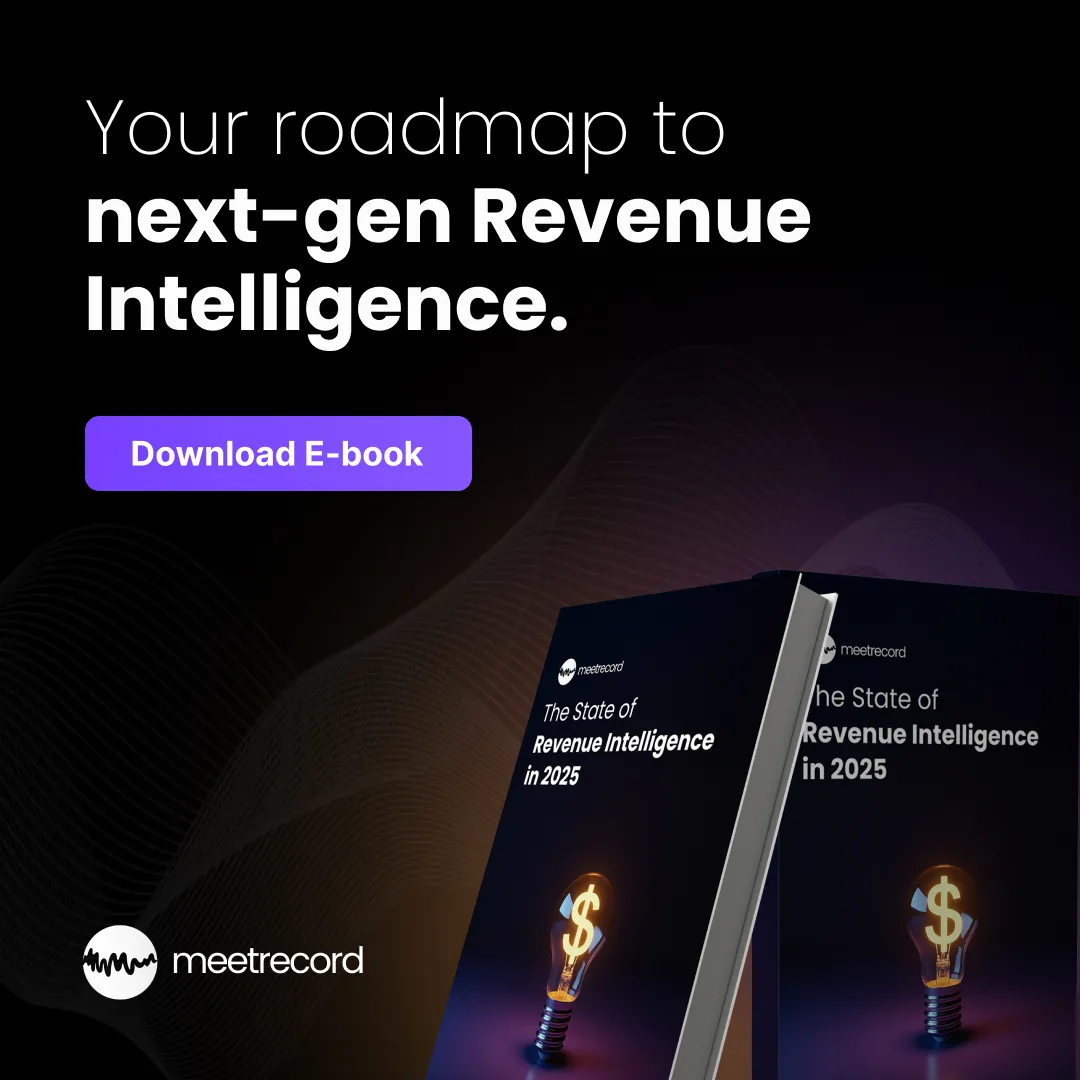Looking for the best Chorus alternatives? This blog has everything that you need to know.
Chorus has made an enviable name for itself in the conversation intelligence space. Its success is the reason why ZoomInfo paid $575M to acquire the product in 2021.
But here’s what most teams realize after using it for a few quarters: it’s not always built for the way you sell today.
Whether you're scaling fast, need cleaner data, or want AI features that actually make reps better it's fair to ask: Is Chorus still the right fit?
In this guide, you’ll find a detailed breakdown of the 10 best Chorus alternatives. I’ve tested each of them.
We’ll discuss their strengths, what to watch for, and who they're best for. If you’re in sales, RevOps, or enablement, this list will save you hours and help you find the right conversation intelligence tool.
Why Are Companies Looking for Chorus.ai Alternatives in 2025?
Chorus helped create the conversation intelligence wave along with incumbents like Gong. For years, it set the standard for call recording and post-call analysis.
But markets evolve, customers’ expectations change, and new entrants redefine the rules of the game overnight.
Now, more sales leaders are asking the same question:
Does Chorus still deliver the value it once promised?
In 2025, there’s a pattern to why companies start looking elsewhere. It's not about chasing shiny new tools. It's about solving persistent problems Chorus hasn’t fixed since its acquisition.
1. Chorus.ai’s Pricing Is Too High for Scaling Teams
Chorus isn’t cheap. And that’s usually fine, if the product offers justifiable return on investment (ROI).
But many teams say they’re paying enterprise prices for mid-market value. There’s limited room to scale up or down based on usage.
Add-ons like conversation scoring or coaching insights cost extra. This makes Chorus hard to justify when CFOs are scrutinizing every SaaS app investment.
What you often get is a one-size-fits-all license, whether your team is 10 reps or 100.
2. Rigid Platform with Limited Flexibility
Chorus integrates well with ZoomInfo’s stack, but other integrations beyond that are often patchy.
If you’re not using ZoomInfo or Salesforce as your core systems, you’ll need to stitch workflows together manually.
RevOps teams in 2025 aren’t just looking for a recording tool. They want a system that plugs cleanly into their CRM, LMS, dialers, Slack, and even forecasting tools.
When you’re forced to retrofit your workflows around a tool’s limitations, it’s not a good sign.
3. Customer Support Can Lag Post‑Acquisition
Support used to be a strong point for Chorus. But after the ZoomInfo acquisition, things changed.
Comb through Chorus’ reviews in any software comparison forums and you’ll see a clear pattern of users complaining about longer response times and subpar support quality.
This isn’t unusual when a company gets acquired. The company’s priorities shift, integrations are built in a hurry, and product (and support) become the scapegoat.
If you’re evaluating Chorus to support a fast-moving GTM team, know that the lag can add up really fast.
4. Lacks Real‑Time Guidance and Rapid Innovation
Real-time coaching is table stakes in the conversation intelligence space. So is AI-powered summarization and contextual feedback.
But Chorus hasn’t pushed the envelope on these in a while.
While relatively smaller platforms are experimenting with new features AI roleplay, sentiment analysis, and native integration into enablement platforms, Chorus is stuck on basic transcript-based insights.
For a tool that was once known for being ahead of the curve, it feels like it’s stopped running.
How We Evaluated the Chorus Alternatives
We didn’t just research features. Instead, we focused on what actually drives performance inside a sales org. Here’s the lens we used:
Quick Comparison Table: Chorus.ai vs Top Alternatives
Looking for a side-by-side view? Here’s a quick breakdown to help you find the right fit based on coaching, analysis, insights, and pricing.
Top 11 Chorus.ai Alternatives: Pros, Cons, and Pricing Compared
Chorus used to be one of the best conversation intelligence software, yesterday. But if you’re in the market today, you’ve got better options that are more flexible, rich in AI capabilities, and more tuned into modern revenue teams.
Below, I’ve reviewed 11 strong Chorus alternatives. Each tool is evaluated on what it does best, how it stacks up to Chorus, and who should actually consider using it.
1. MeetRecord
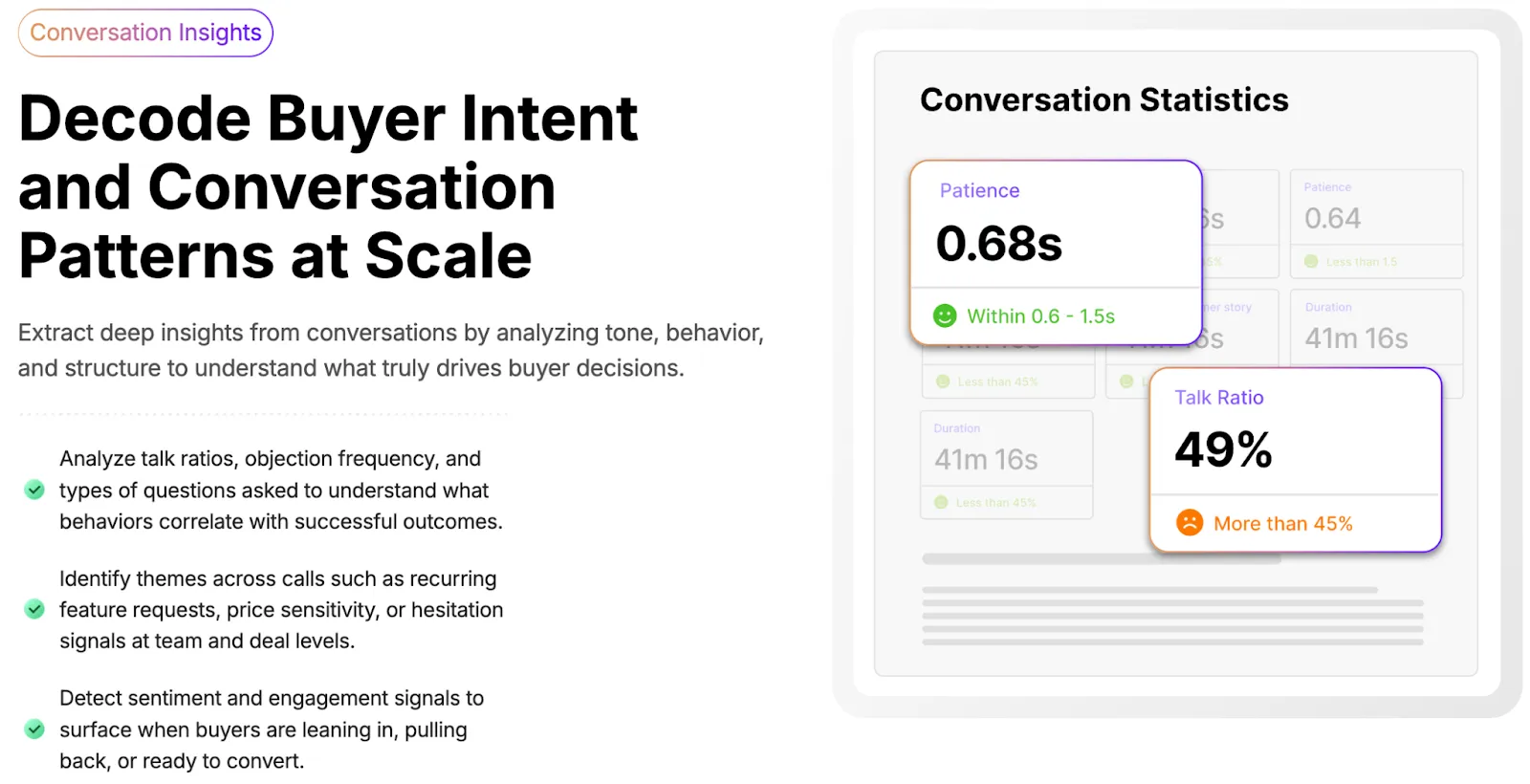
If you want the breadth of Chorus with more actionable intelligence baked in, look no further.
MeetRecord brings conversation intelligence, AI coaching (with roleplay capabilities), CRM workflows, and deal health insights into one platform.
Unlike a lot of traditional tools that bolt on forecasting, MeetRecord ties every call and activity to pipeline.
How MeetRecord Compares to Chorus.ai
Chorus tells you what happened, MeetRecord tells you what to do next.
It offers automated AI coaching, CRM automation, call scoring, and deal insights across all revenue teams, not just sales.
It also includes custom AI agents that go beyond transcription and help with real-time follow-ups and pipeline risk analysis.
Pros:
Cons:
Pricing:
Custom pricing, tailored to fit specific business needs. Book a demo to learn more.
Ideal For:
Mid-market to enterprise orgs revenue teams that want full-funnel insights.
Testimonial:
Janne N., Verified G2 reviewer
Want a deeper dive? Here’s a detailed breakdown of how MeetRecord stacks up to Chorus.ai.
2. Gong
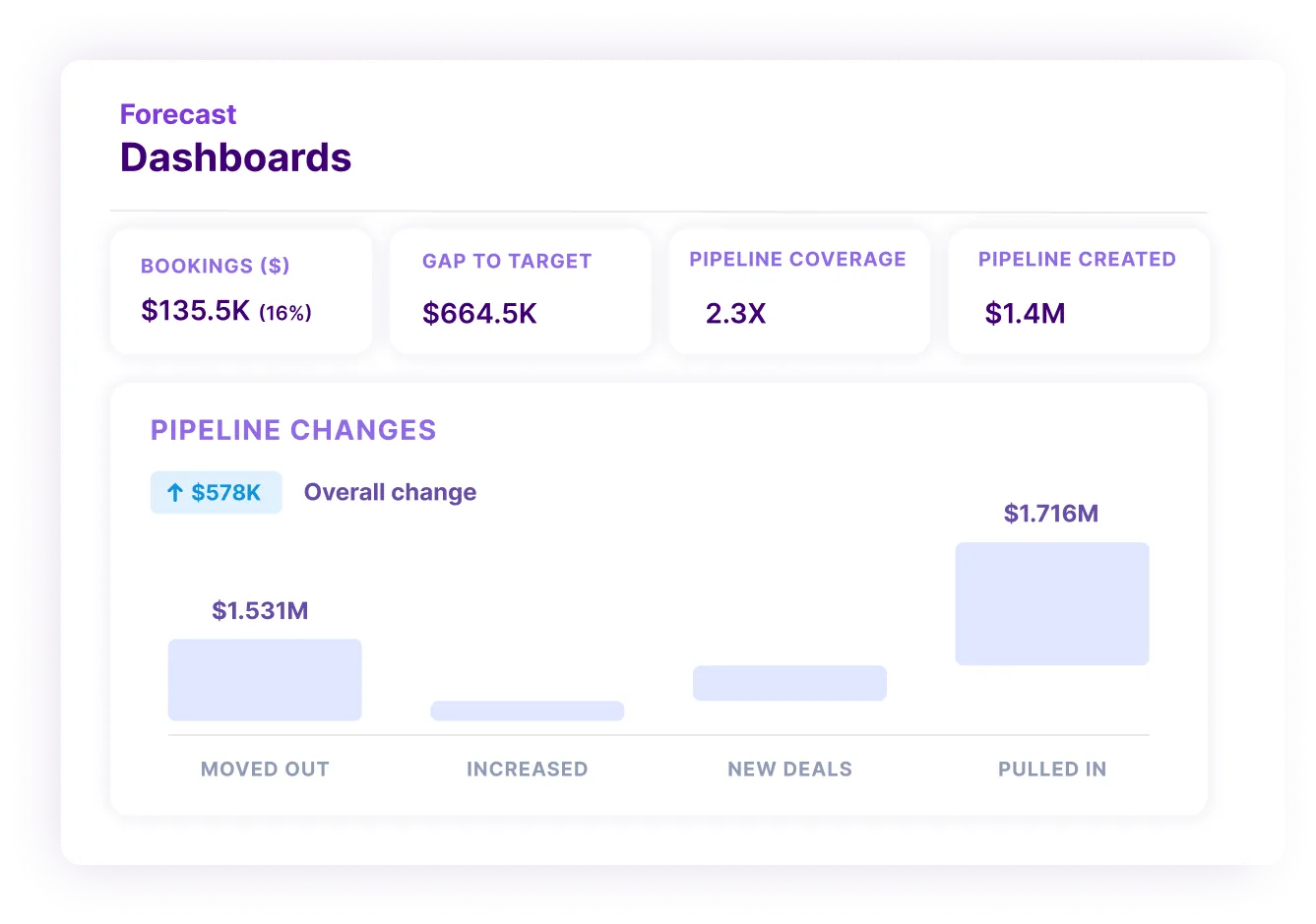
Gong undoubtedly has the biggest mindshare in the conversation and revenue intelligence software space.
It’s especially a darling for companies that treat RevOps as a science experiment. It brings conversation intelligence, deal insights, and forecasting into one high-velocity engine.
However, you’ll need a serious ops team to run it.
How Gong compares to Chorus.ai:
Chorus is conversation-focused. Gong goes wider with pipeline forecasting, deep CRM hooks, and custom data models.
But that complexity can be a trade-off. Implementation takes time and the pricing (which is gated) is out of reach even for most mid-market and enterprises who can get similar value at a lesser cost.
Pros:
Cons:
Pricing:
Not listed publicly; typically high five-figures for full suite.
Ideal For:
Large orgs with mature RevOps and custom data needs.
Testimonial:
Sophie A., Verified G2 reviewer
You might also like: Gong.io pricing 2025 vs 5 Other Revenue Intelligence Tools
3. Clari Copilot (Formerly Wingman)
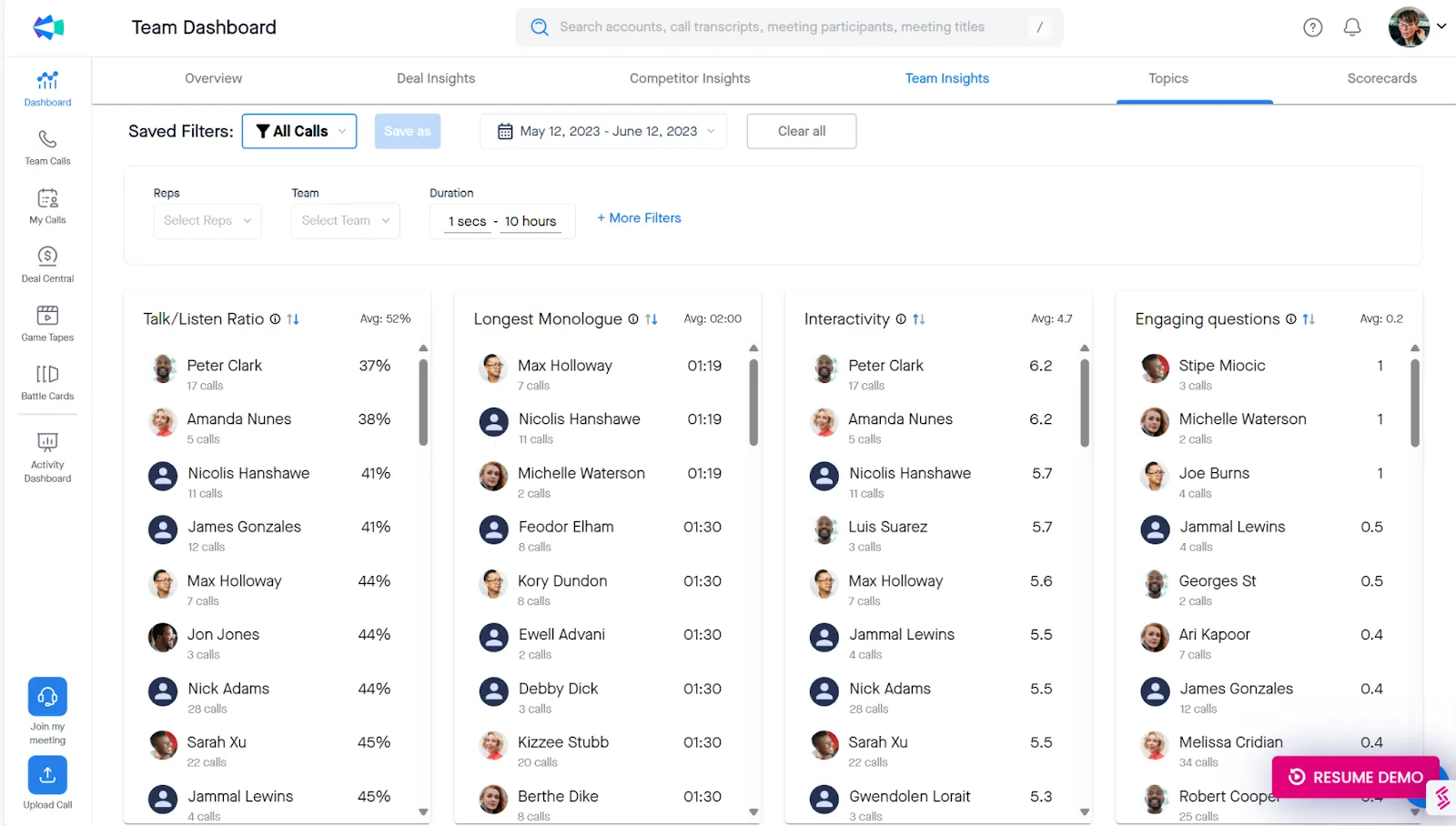
Clari acquired Wingman in 2022 and rebranded it as Clari Copilot. The acquisition helped Clari add a forecasting layer to its suite and lock its conversation intelligence tighter into the Clari stack.
Clari Copilot shines because it provides real-time cue cards and call scoring in addition to its forecasting engine.
How Clari Copilot Compares to Chorus.ai:
Clari Copilot wins on live coaching. Chorus doesn’t do real-time. But Chorus has more advanced analytics for teams outside the Clari stack.
Pros:
Cons:
Pricing:
Not disclosed; bundled with Clari suite.
Ideal For:
Sales orgs already using Clari’s forecasting platform.
Testimonial:
Tracy A., Verified G2 reviewer
Want more options that offer forecasting and conversation intelligence that isn’t Clari? Check out our list of top Clari Copilot alternatives.
4. Salesloft Conversations
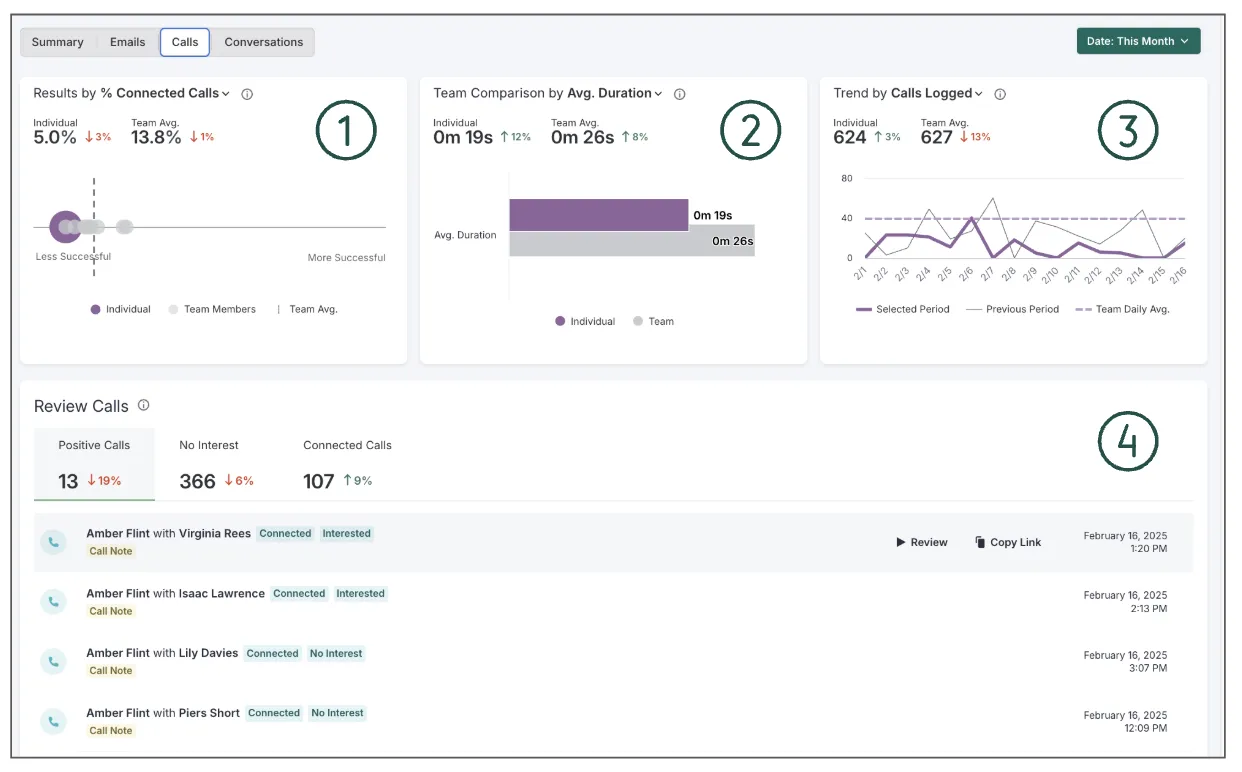
If you’re already deep into Salesloft, Conversations is a frictionless add-on. It records calls, scores reps, and plugs into your engagement cadences.
As a standalone conversation intelligence tool, however, it lacks depth. That’s because it lacks advanced coaching workflows, offers limited analytics, and little flexibility beyond Salesloft's native workflows.
How Salesloft Compares to Chorus.ai:
Chorus is broader in features. Salesloft Conversations is smoother for teams who live in Salesloft. If you’re trying to reduce tool sprawl, this works.
Pros:
Cons:
Pricing:
Included in Salesloft packages or as add-on.
Ideal For:
Outbound sales teams that use Salesloft daily.
Testimonial:
Karem H., Verified G2 reviewer
5. Avoma
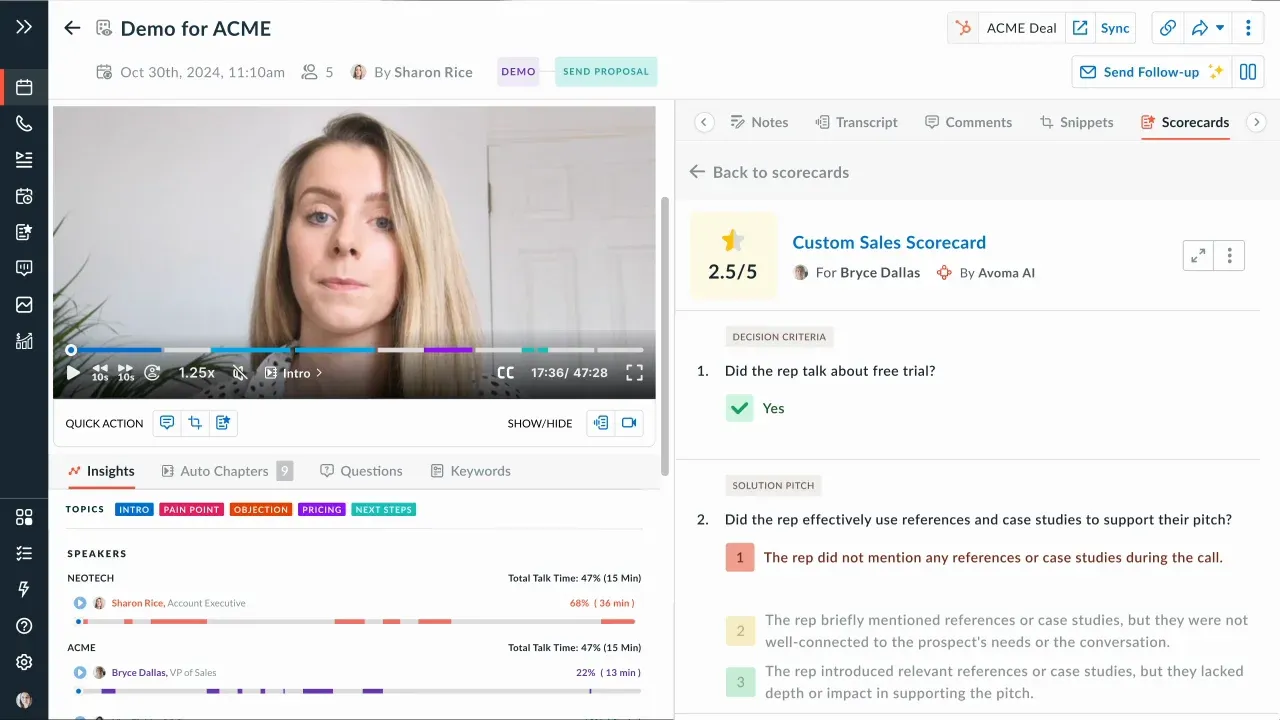
Avoma started as a meeting productivity and management tool. It now does some conversation intelligence: call recording, searchable notes, and agenda capture. But it’s more cross-functional than sales-focused.
How Avoma Compares to Chorus.ai:
Chorus goes deep on sales. Avoma is better for general team meetings. It includes features like lead routing and snippets for CS and product teams.
Pros:
Cons:
Pricing:
Starts at $19/user/month; free tier available.
Ideal For:
CS, support, and product teams that want searchable calls.
Testimonial:
Jackson H., Verified G2 reviewer
6. Fireflies.ai
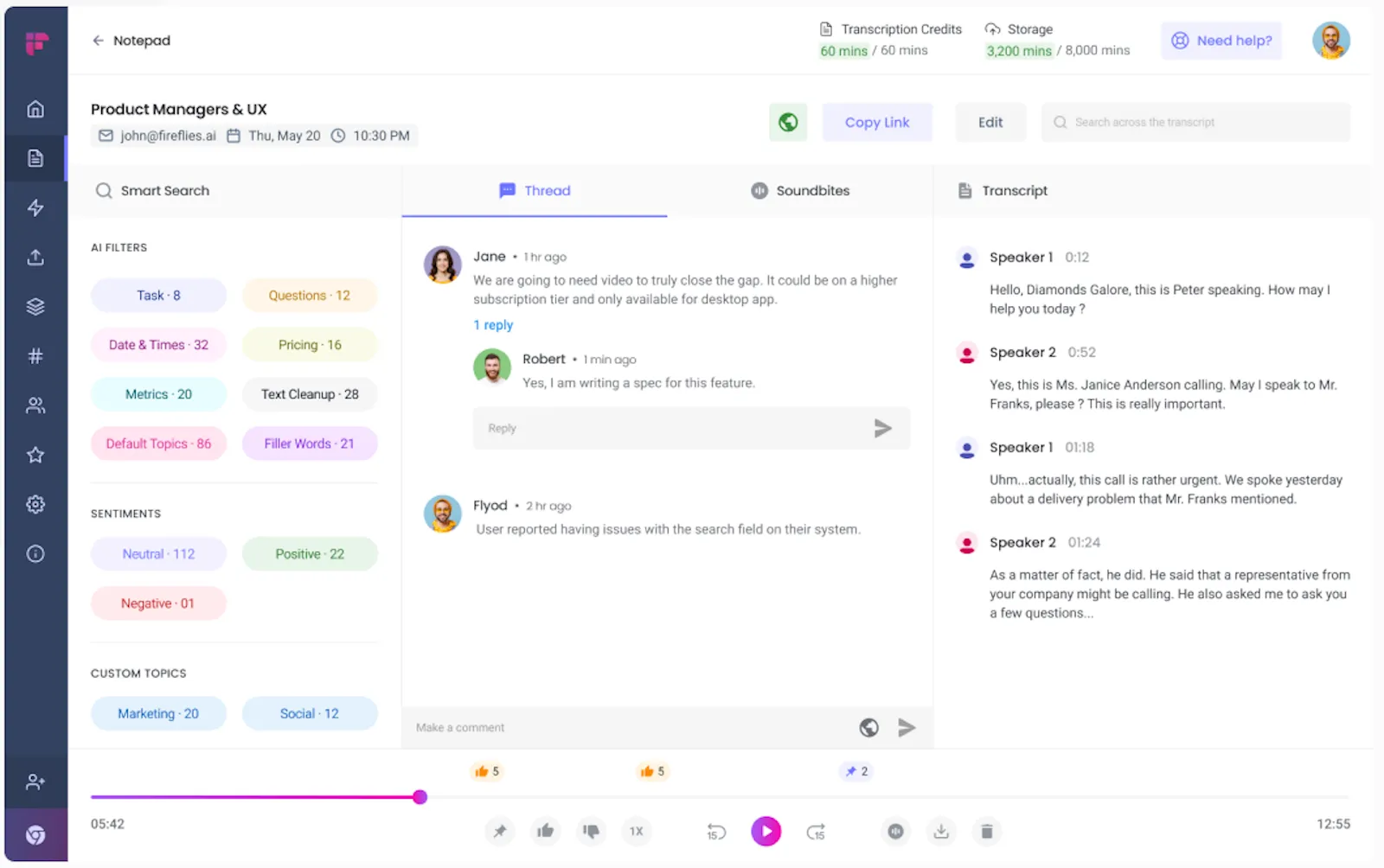
Fireflies gets you quick transcriptions, post-call summaries, and basic automation like follow-up drafts. It’s not a CI platform in the traditional sense, but it’s useful if your sales ops are still figuring things out.
It recently joined the Unicorn club with a $1 billion valuation; a proof that simplicity and utility still win when the price is right.
How Fireflies Compares to Chorus.ai:
Chorus offers layered insights, deal health, and forecasting. Fireflies is light, fast and great if you only need recordings and searchable notes, but not if you need rep coaching or pipeline-level intelligence.
Pros:
Cons:
Pricing:
Free plan available; paid plans from $10/user/month.
Ideal For:
Solo founders, early-stage teams, or product demos that just need clean transcripts.
Testimonial:
Nouman J., Verified G2 reviewer
7. Revenue.io
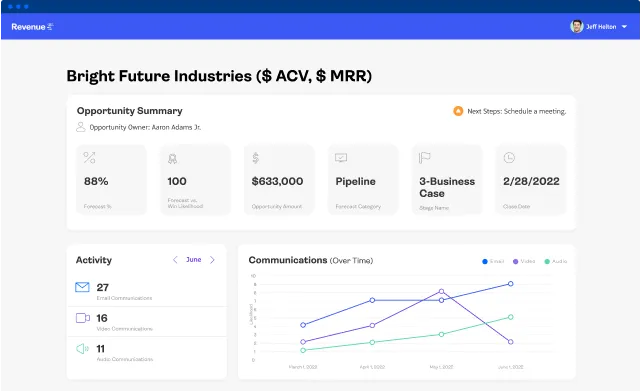
Revenue.io (formerly RingDNA) focuses on phone-based sales. You get call scoring, coaching, and automation built around telephony workflows. But it’s not designed for Zoom or MS Teams-based conversations.
How Revenue.io Compares to Chorus.ai:
Revenue.io is stronger on phone, weaker on video. Chorus, on the other hand, shines in Zoom environments. Use Revenue.io if your reps live on the phone.
Pros:
Cons:
Pricing:
Not disclosed; often bundled with their dialer.
Ideal For:
Outbound telesales teams, especially SDRs who do high call volumes.
Testimonial:
Lin K., Verified G2 reviewer
8. Jiminny
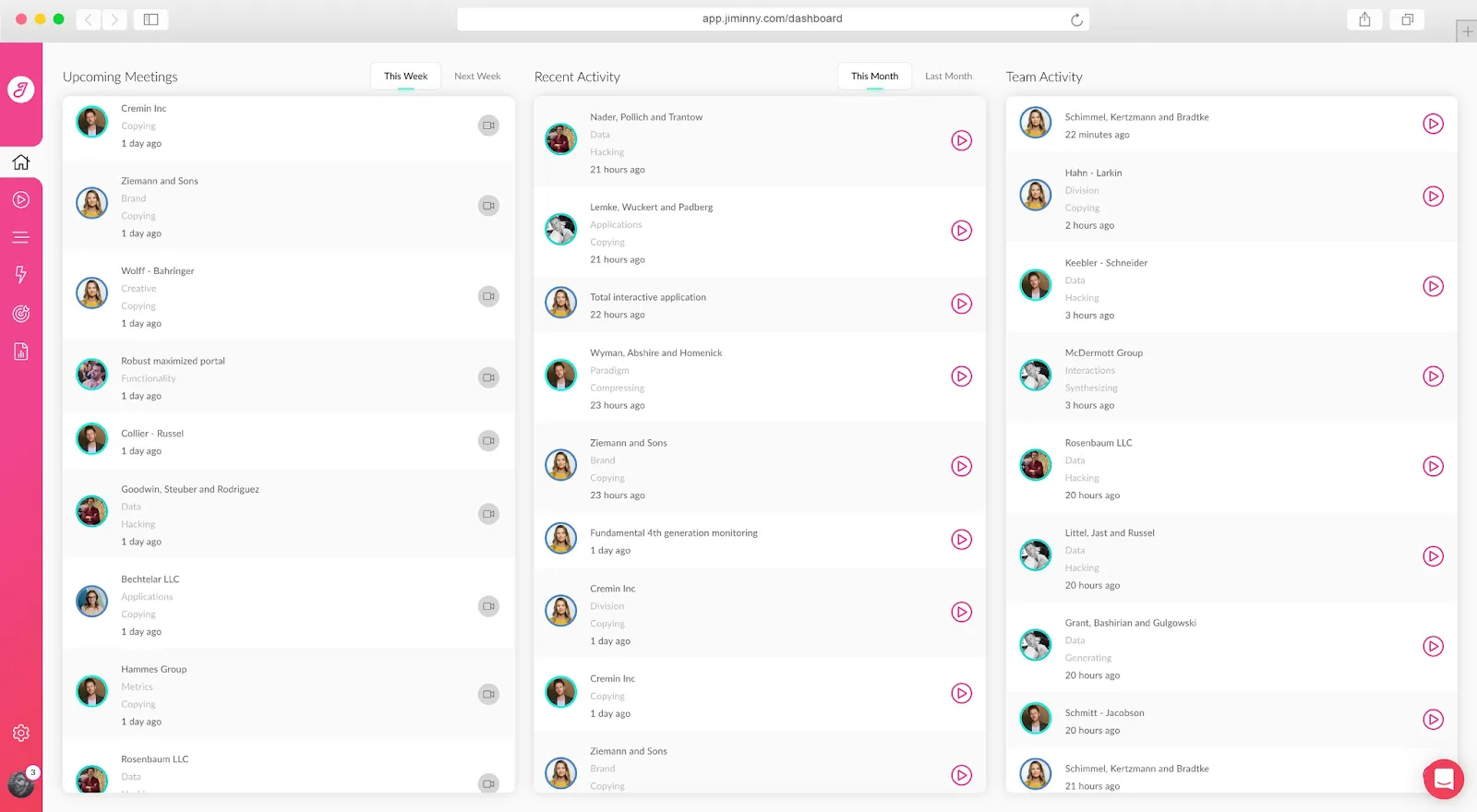
Jiminny is more people-focused than data-focused. It offers call recording, onboarding support, and collaborative coaching tools.
The UI is easy, and the analytics are easy to process even for non-RevOps experts.
How Jiminny Compares to Chorus.ai:
Chorus has deeper integrations and enterprise appeal. Jiminny is leaner and easier to get started with. It’s built for managers who want to coach reps without wading through dashboards.
Pros:
Cons:
Pricing:
Not disclosed; our research shows that plans start at ~$80/user/month.
Ideal For:
Mid-sized sales teams who want visibility without a complex setup.
Testimonial:
Roxana B., Verified G2 reviewer
9. Mediafly
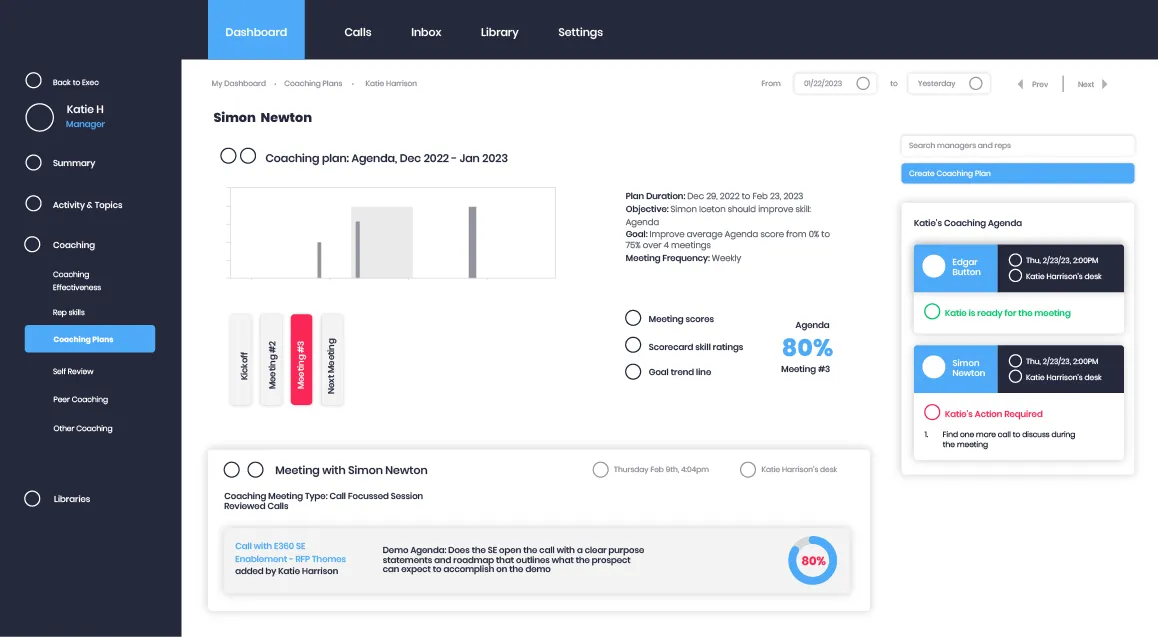
Mediafly acquired ExecVision in 2022 and folded it into its Revenue360 Platform to add coaching capabilities to its suite.
If you’re serious about rep development, not just recording calls and tagging keywords, Mediafly helps.
It gives you searchable transcripts, rep scorecards, and curated training libraries that plug into real conversations.
How Mediafly Compares to Chorus.ai:
Chorus was built to analyze pipeline data. Mediafly leans toward human performance; think onboarding, L&D, and sales coaching. If your biggest gap is getting new reps up to speed or building a repeatable coaching culture, Mediafly makes more sense.
Pros:
Cons:
Pricing:
Not listed publicly.
Ideal For:
Enablement and sales readiness teams that prioritize structured coaching and onboarding.
Testimonial:
Matt S., Verified G2 reviewer
10. Otter.ai
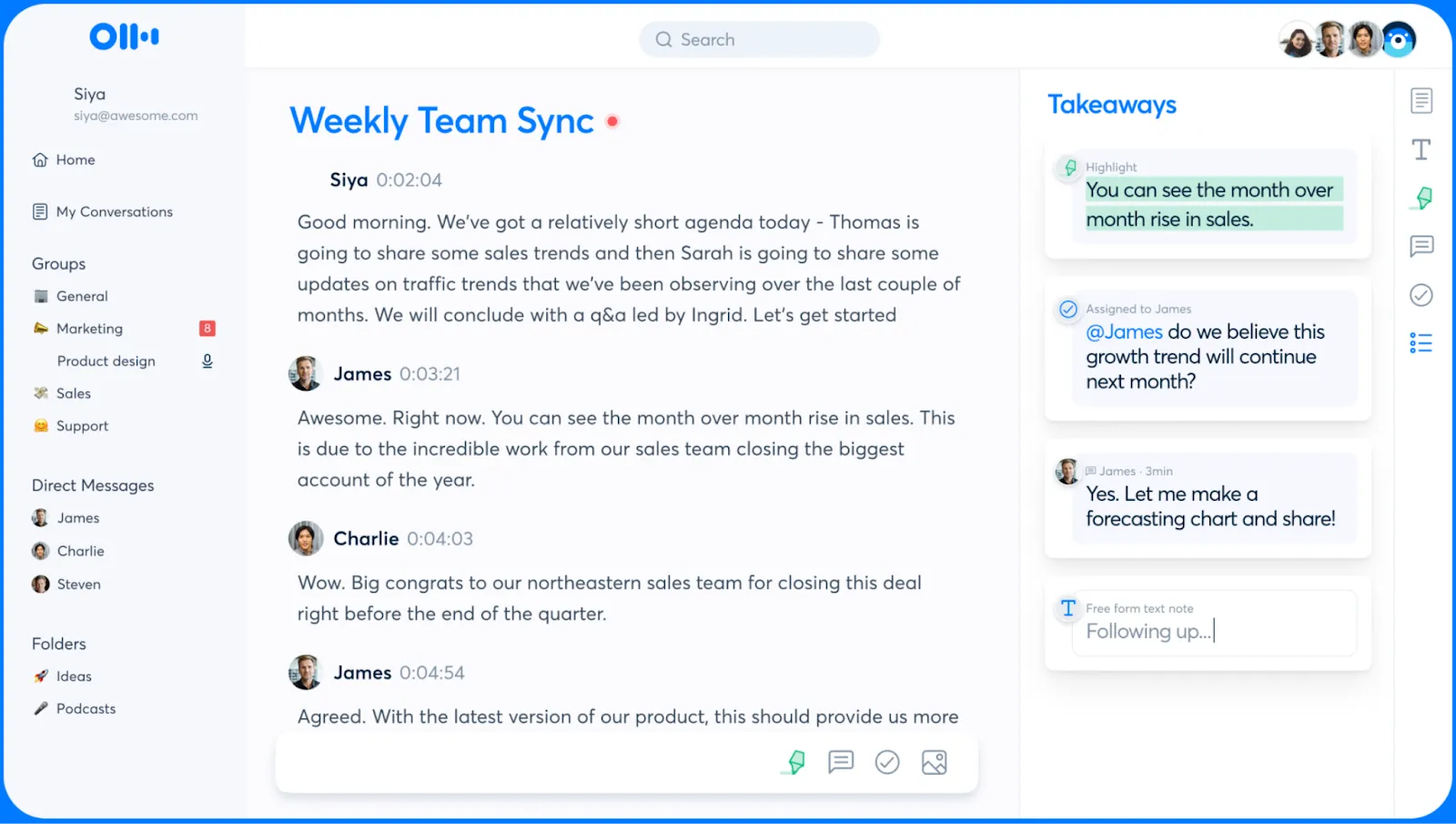
Otter isn’t a sales tool. It’s a general-purpose notetaker that captures meetings, syncs across platforms, and creates summaries. If that’s all you need, it’s a good fit. But it doesn’t do sales coaching or analytics.
How Otter.ai Compares to Chorus.ai:
Chorus is built for sales. Otter is built for note-sharing. They’re not interchangeable. But for teams that don’t want coaching or CI not just transcripts, then Otter is a steal.
Pros:
Cons:
Pricing:
Free plan available; paid plans start at $8.33/month.
Ideal For:
Cross-functional teams that value searchable notes over analytics.
Testimonial:
Shivam S., Verified G2 reviewer
Curious how Otter stacks up to full CI tools? Here’s a detailed breakdown.
11. Fathom
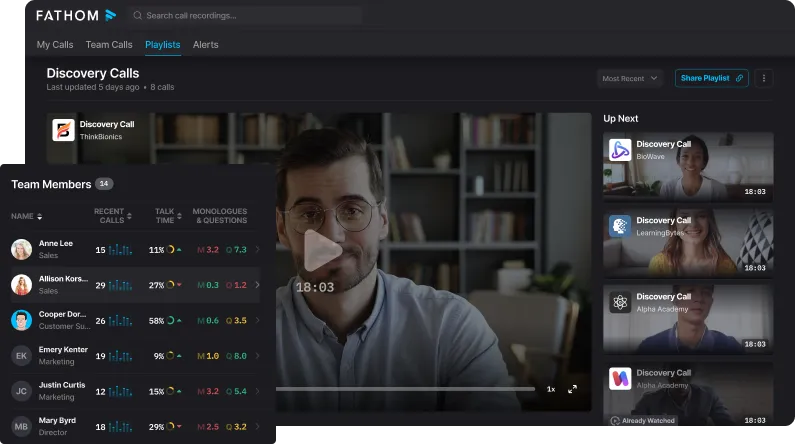
Fathom is like Otter but a bit more tuned for sales and customer calls. It records, summarizes, and pushes action items to your tools (CRM, Notion, Slack). But again, there’s no forecasting, coaching, or pipeline visibility.
How Fathom Compares to Chorus.ai:
Chorus delivers strategic insights. Fathom is tactical and perfect for reps who just want notes, next steps, and a synced CRM.
Pros:
Cons:
Pricing:
Free plan available; team plans start around $15/user/month.
Ideal For:
Teams that want AI meeting summaries without the overhead of full conversation intelligence.
Testimonial:
Callum M., Verified G2 reviewer
Which Chorus.ai Alternative Is Right For You?
There’s no one-size-fits-all answer here. The right tool depends on your team’s stage, structure, and what you actually need out of a conversation intelligence platform. Here’s how to think about it:
1. On a tight budget?
Start with tools like Fireflies, Otter, or even MeetRecord (for justifiable ROI). These offer the core features - recording, transcription, basic insights at a price that won’t blow up your tech stack. Perfect for lean teams or orgs still building muscle.
2. Need real-time coaching built for managers?
Look at Wingman, Jiminny, or Revenue.io. These tools prioritize in-the-moment feedback and live call intelligence, which matters if you're trying to coach at scale without chasing down every recording.
3.Want better notes across departments?
Tools like Avoma, Fathom, and Otter help with cross-functional note-taking. These are useful when marketing, product, and CS also need call context without logging into a sales platform.
4. Rolling out to a large, global sales org?
You’ll want tools built for enterprise deployments. MeetRecord, Gong, and Clari Copilot can handle compliance, provisioning, and admin complexity across regions.
5. Looking to unify outreach and intelligence?
Salesloft and Revenue.io blur the lines between engagement and intelligence. You can run cadences, record calls, and analyze everything in one system. Just know these aren’t cheap, and you’ll need the ops bandwidth to set them up right.
6. Prioritizing rep training over call analysis?
Mediafly and Jiminny are more focused on skill development. They shine in orgs that treat conversation intelligence as a training tool, not just a data pipeline.
Still unsure? Start by identifying your internal bottleneck. That’ll point you toward the tool that fixes what’s actually slowing down your revenue team.
What Most Teams Get Wrong About Choosing a Chorus Alternative
Most teams think the hard part is comparing features. It’s not. The hard part is choosing a tool your team will actually use consistently, across roles, across regions, without extra admin work.
In 2025, conversation intelligence isn’t just about call transcripts or dashboards. It’s about driving real coaching, tighter forecasting, and faster ramp times. The market is full of tools that sound similar. But when you look closer, the differences are real.
Your job isn’t to find the flashiest demo. It’s to pick a platform that fits your sales motion, adapts to your stack, and delivers actual outcomes and not more noise.
MeetRecord was built with that mindset. If you're looking for a Chorus alternative that combines intelligence, coaching, and usability without enterprise pricing games, it’s worth a closer look.
Book a demo and see how it fits your team in real life, not just in a feature checklist.


.svg)

.webp)

